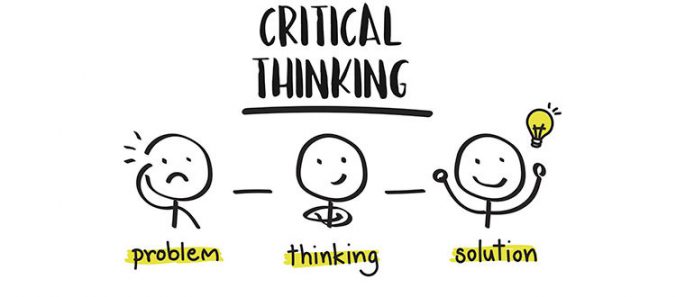What is critical thinking?
Critical thinking is the rational, skeptical, unbiased analysis, or evaluation of factual evidence. The U.S. Department of Labor has identified critical thinking as the raw material of a number of key workplace skills, such as problem solving, decision making, organizational planning and risk management.
Why is it important?
Critical thinking is consistently rated by employers as being a skill of increasing importance, and yet a recent study showed 49% of employers rate their employees’ critical thinking skills as only average or below average.
Critical thinking, perhaps more than any other business skill set, can make the difference between success and failure. Fortunately, critical thinking is neither an innate gift that can’t be developed nor a skill learned only through experience. These skills are not out of reach – they are readily available to employees at all levels. Once gained, critical thinking skills last a lifetime, and become a powerful asset for those seeking a competitive edge.
Amidst a sea of options, the RED Model is one proven way to view and apply critical thinking principles when faced with a decision.
Recognize Assumptions – Separate fact from fiction.
Evaluate Arguments – Analyze information objectively and accurately, question the quality of supporting evidence, and understand how emotion influences the situation.
Draw Conclusions – Bring diverse information together to arrive at conclusions that logically follow from the available evidence.
Want to increase your skills?
For real life tips and techniques to strengthen your skills, consider taking our ‘Critical Thinking Skills’ course. Click here to register for an upcoming offering.
Reference: Pearson (2015, September 9) B. Harris: The Status of Critical Thinking in the Workplace


Leave a Reply